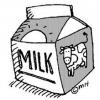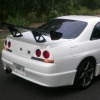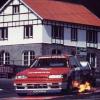Standard Bearings Vs Acl Racing Bearings?
Announcements
-
Similar Content
-
Latest Posts
-
No. I think it's gone. 😭 I think you can get body coloured ones on eBay so I think I'll get one of those... Or just hang a red ribbon from the hole and whack a TOW sticker next to it.
-
Can't say I've had a bad experience with one on my car, then again it only gets washed once or twice a year... The wheels on the other hand, get a good spray often due to my shitty dusty pads.
-
@MBS206 thats pretty neat and tidy to me! I'll get a photo of mine when I'm out there next. It might require multiple photos to understand the scale of the atrocities though... In total I have 4 sheds of varying sizes and layouts. Main shed is 14x8, second shed is 3x8, third shed is 11x2.5, fourth shed is around 6x4. All are pretty much full. The main goal of my cleaning tsunami is to make the main shed predominantly car and motorbikes only. Second shed is my metal fab room (2 x bench grinders, drill press, bench belt sander, metal band saw, scrap metal storage and some of my garden tools. 3rd shed is more bigger garden stuff, storage for engine crane, jack stands, concrete grinder, concrete mixer, air compressor lives there, and it now has two 2mx2m pallet racking shelves with itemised boxes holding building stuff, electrical stuff, plumbing stuff, etc, etc. The 4th shed is Ryobi electric ride on mower, mini boom sprayer, ancient Kubota tractor, more garden stuff! I have got a lot of shit.... Then there's the pool house (8mx4m) and the pool pump shed (4mx4m). I built all of the sheds over the 11 years we've been here. The main shed was a Ranbuild kit, the rest are all custom made to fit the areas available. Building the main shed taught me a LOT as I had no idea about building anything prior to that! I've still got one more in me. It will be my man cave which I poured the extra concrete for way back when I poured the concrete for the main shed. The idea is the Skyline will be a centre piece of the main cave once (if...) it's finished. I told my now 14 year old son yesterday that I will 100% drive him to his year 10 formal in 2 years. Still a long way off but at least I now have a date to work towards! 🤣
-
Modern oils are amazing. Add tyres to that as well.
-
Probably a smart choice to buy one vs build, purely for the motivation part as you said! Imagine the metal dust everywhere from grinding all the steel to build one. Ha ha ha! Also, post a photo of your garage. Mine is below, this is where I've been cleaning and have already half filled a caged 6*4 trailer. And this is after my cleaning expedition mentioned previously... The middle normally has a car in it, but I'm dumping things in the middle as I sort through them. And poor skyline was dusty and has had the lightest few drops of rain and now it looks atrocious and needs to be dragged back out and washed thoroughly! And yes to the right is technically another bay, you really can only see 2 bays out of 3 in this picture.
-








Recommended Posts
Create an account or sign in to comment
You need to be a member in order to leave a comment
Create an account
Sign up for a new account in our community. It's easy!
Register a new accountSign in
Already have an account? Sign in here.
Sign In Now